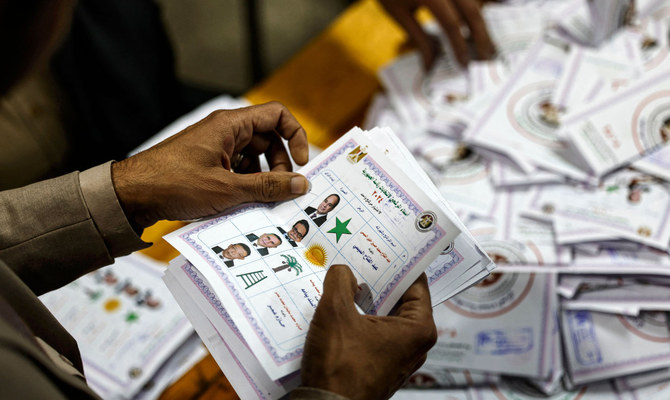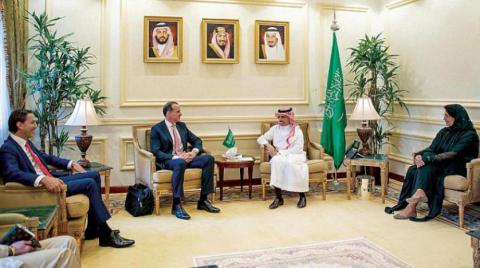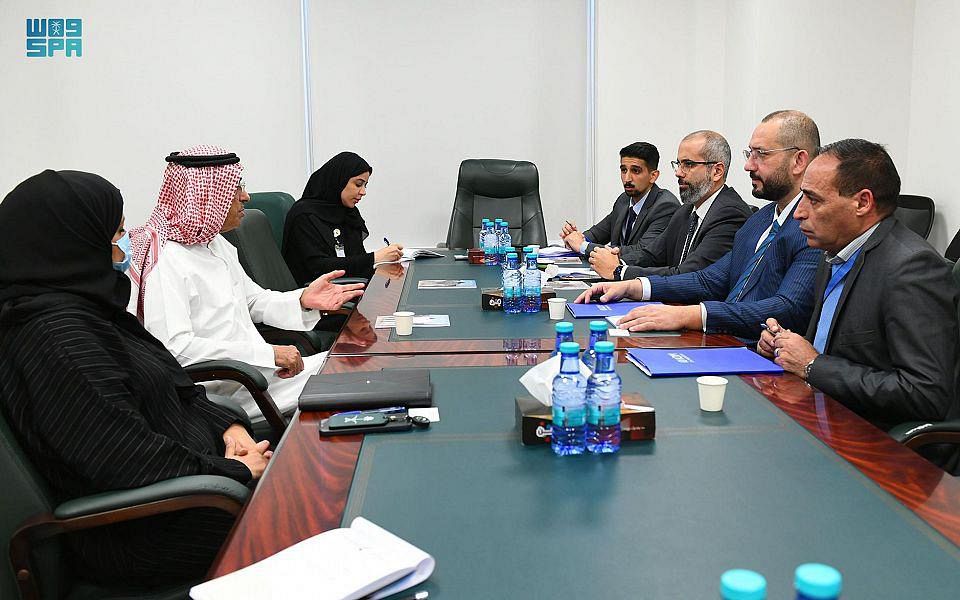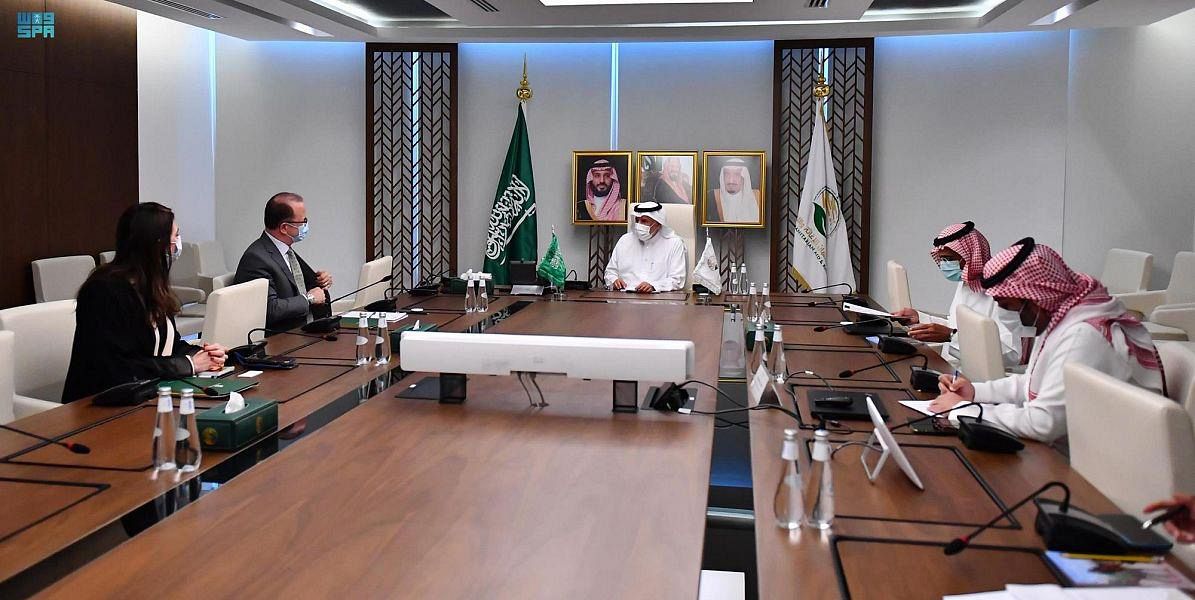
As we close out one year and look ahead to the next, a whirlwind of convulsions threatens to push the Middle East and North Africa region over the edge.
For the optimists, this year’s series of seemingly bizarre developments are only part of a broader, profound transformation and overdue sociocultural change. Others, however, believe the Arab world is adrift in uncharted waters, rocked by the crosscurrents of geopolitical rifts and shifting interregional dynamics, a defining hallmark of 2023, that have made a casualty of the overarching trend of de-escalation.
It is abundantly clear that the contours and narratives of the region are being molded and remolded almost in real time, with remarkably resilient societies hobbling along in a disordered world, impelled by conflicts, competition and fragmentation.
That resilience is set to face its most challenging test yet against headwinds that are likely to intensify in the coming years. Next year will be a very consequential one because almost half of the world"s population will head to the polls in 40 countries. As historic as that will be, there are grave concerns that the clash of wills at the ballot boxes — affecting about 3.2 billion people and more than $44 trillion in combined gross domestic product — will increase the turbulence in our poly-crisis era of brutal wars, record debt, high inflation and a warming planet.
Arab countries will have to attempt to maintain a high level of adaptability in navigating a series of ever-more capricious tides in global geopolitics, as new governments settle in and implement policy shifts consistent with the demands of their electorates.
Recent experiences in efforts to pursue the power of dialogue over the force of arms, dissolve long-term rivalries, and seek strategic diversification — to hedge against changeable international partners, most notably in response to the perceived inconsistency of US policies — is a testament to this capacity for “adaptation” in a fast-changing world.
A chaotic 2023 and the prospect of a highly consequential 2024 have made such adaptation even more necessary. After all, the region will remain at the epicenter of an intensifying global hegemonic rivalry.
As the US continues its strategic retreat, its presence in the region is being subtly replaced by a more covert approach. This move symbolizes a shift from overt military dominance to a more nuanced engagement.
The recalibration of America’s regional strategy contrasts sharply with China’s steady encroachment, evidenced by its pivotal role in brokering the normalization agreement between Saudi Arabia and Iran in March this year.
The shadow of Russia looms large, too, with its actions in Ukraine and its burgeoning partnership with Iran affecting regional stability and food security.
The process of adaptation should therefore not be informed solely by shifts among global hegemons or tremors elsewhere on the planet. Of equal significance are the long-term perceptions among Arab governments of home-grown security, legitimacy and stability.
In recent years, these governments have become more confident than ever in engaging with regional rivals after quelling domestic opposition. However, economic uncertainties and sociopolitical issues persist within some Arab countries, making them vulnerable to turbulent course corrections influenced by a pressing need for comprehensive and inclusive governance reforms.
Next year will be a very consequential one because almost half of the world"s population will head to the polls in 40 countries.
Hafed Al-Ghwell
Without such measures, the regional terrain risks a return to a state of greater unrest, and progress in regional diplomacy could swiftly unravel in the face of economic and insurmountable social challenges.
Moreover, the region is also experiencing an intriguing shift in power dynamics. Once a formidable regional power, Egypt is grappling with myriad challenges. As Cairo’s clout wanes, other nations are poised to seize the opportunity to fill the vacuum.
Turkiye and Qatar have gradually cemented their positions by leveraging their economic strengths, ideological influence and strategic alliances. The UAE’s embrace of “foreign policy proactivism” has broadened its strategic footprints in Libya and Sudan, areas traditionally within Egypt’s sphere of influence.
This jockeying for regional preeminence might also give nontraditional actors, such as Algeria and even Ethiopia, a chance to capitalize on a growing power vacuum. While Ethiopia"s involvement hinges predominantly on the dispute over Nile water, its budding alliances and regional posturing cannot be discounted. On the other hand, after years of political and economic struggles Algeria is undergoing a diplomatic rejuvenation.
Elsewhere, the long shadows of 2011 continue to manifest themselves. The long-term effects of the unresolved crises in Syria and Libya loom ominously over the coming year, casting doubt on the sustainability of the regional equilibrium.
The dire situation in Syria highlights the necessity of renewed multilateral diplomatic dialogue. Arab participants will have to step up their diplomatic efforts to help unfreeze the lines of conflict, break down the political walls that divide Syria’s rival territorial zones and, ultimately, reintegrate the country into the global community.
Managing Libya’s instability calls for successful reconciliation. Ongoing squabbles and an unending power struggle between political elites, hybrid actors and external meddlers continue to deter progress toward achieving a stable future for the country. The most likely path forward continues to lie in empowering the UN to broker a more inclusive settlement. Counteractive measures from the international community, primarily the US, can help contain disruptive influences and prevent additional conflict.
The more recent conflicts in Sudan and Gaza add another layer of complexity. The challenge here is to prevent these crises from becoming tinderboxes that ignite broader regional conflict. Robust peace efforts involving global and regional players will be crucial if these conflicts are to be deescalated and further polarization prevented.
In the year ahead, Arab countries will continue to carefully navigate this complex landscape, balancing their partnerships with global powers, responding to internal and regional challenges, and striving for stability and growth. Past experiences will undoubtedly shape their strategies but the ever-evolving geopolitical dynamics will necessitate constant reassessment and recalibration of these approaches.
Next year promises to be a busy one for the MENA region, filled with opportunities, challenges and critical decisions that will shape its future.
• Hafed Al-Ghwell is a senior fellow and executive director of the North Africa Initiative at the Foreign Policy Institute of the Johns Hopkins University School of Advanced International Studies in Washington, DC.
X: @HafedAlGhwell










